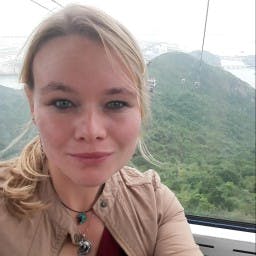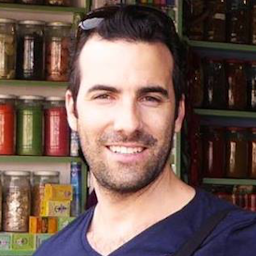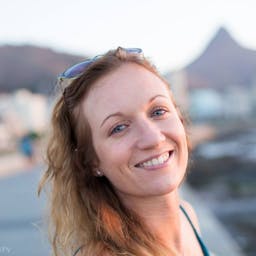Tanzania
Kilimanjaro Machame (6 Day Trek)
Trek through dense rainforest, wild camp in glaciated terrain, and summit the highest mountain in Africa (5,895m).
Highlights in 60 seconds
Itinerary
We pick you up from Kilimanjaro International Airport (JRO) and transfer you to your hotel in Moshi town, where you spend the night.
At the hotel, your guide will brief you on the upcoming trek and do an equipment check to make sure you have all the necessary mountain gear. If you're missing anything important, not to worry, we offer gear rentals.
We drive one hour to reach the gate to the Machame route. Here you complete the Flag Off ceremony and begin your trek. The first section of the route passes through dense rainforest towards Machame Camp.
The route continues up through the forest and onto the Shira Plateau, with it's impressive views of the mountain. Looking back, you will be able to see Mt Meru (4,565m) rising high in the distance.
Today the landscape changes dramatically to barren moorland. You traverse the southwest side of Kilimanjaro, passing underneath the Lava Tower from the now dormant volcano. You spend the day at a relatively high altitude (up to 4,600m), but follow the mountaineering code of ‘walk high, sleep low’ to acclimatise.
The day starts by descending into the Great Barranco, a huge ravine, and then back up over the Great Barranco Wall. It’s an easy scramble and doesn't require any rock climbing. Passing underneath the impressive Heim and Kersten glaciers, we head towards Barrafu Camp.
Today is summit day. We start at around 2:00 AM and begin the steady hike to the summit. As the first sun rays hit, you start to see the glaciers around you, and we aim to be at the peak for sunrise! We spend about 30 minutes on the summit celebrating and taking photos before hiking all the way down to Millennium Camp for some well-earned rest.
A gentle trek takes us down through the rainforest to Mweka Gate, where you will receive certificates before taking a short 4x4 ride to the hotel in Moshi. In the evening, you have a celebratory meal with the rest of the team.
We drive you back to Kilimanjaro International Airport in time for your flight home.
Book Now
All trips are guaranteed to runDon't see your date? We may be able to open a new group or setup a private trip if there are 2 or more people in your party. Contact us.
What's Included
Included
- Professional mountain guides, cooks, and porters.
- Accommodation: You stay in a hotel before and after the trek. During the trek, you sleep in tents.
- All tour permits and camp fees.
- -29°C Extreme Limit sleeping bags and mats.
- Airport transfers (three available pick-up times depending on your flight).
- All food during the 6-day trek (breakfast, lunch, and dinner).
- Dinner at the hotel on the first and last nights, as well as breakfast on departure day.
- Filtered water throughout the trek.
- Tree donation in support of local environmental conservation projects.
Not Included
- International and local flights.
- Lunch on the first and last day.
- Tips and gratuities.
- Personal travel/rescue insurance.
- Visa fees.
- Single supplement: US$90 (optional).
- Portable toilet: US$150 per group (optional).
Have a question?
If you have any questions about this trip or want to speak with an expert, get in touch.
We're ready to help.



Rated 5.0
35 verified reviews
Will
(Jan 2024)
Karen
(Aug 2023)
David
(Aug 2023)
Edward
(Apr 2023)
Evelin
(Feb 2023)
FAQs
Before you go
Here is the recommended kit list to bring with you: Documents: • Passport • Travel insurance details • Boarding passes for flights • Two passport photos • Driver’s license (if needed) • Cash • Credit/Debit Card Sleeping: • Sleeping bag liner (optional) Footwear: • Trekking boots: 3 or 4 season lightweight • Shoes for the plane (optional) Clothing: Please make sure that you have non-cotton clothing for trekking. • Two base-layer t-shirts (e.g. running t-shirts) • Fleece/soft-shell jacket • Waterproof jacket • Down jacket for warmth • Travel clothes and city wear • Underwear • Base-layer trousers (optional) • Waterproof trousers • Trekking trousers • Trekking shorts (optional) • Two thick wool mountaineering socks • Lightweight and breathable trekking socks • Gloves and wool hat Other: • A daysack: 35 litres • A duffel or rucksack with straps to go over your back • Dry Liner or Dry Bag • Water bottle/thermos: At least 2L. Nalgene bottles best. • Sunglasses • Suncream • General toiletries, contact lenses, glasses (if needed) • Towel • Electronics - head torch, travel adaptor, phone & charger • Lipsil • Book • MP3/music and headphones • Travel wash • Hand sanitiser, wet wipes • Trekking poles (optional) If you don't want to purchase your own kit or need to travel light, you can hire most of the equipment from our guides in-country. Get in touch for the list and rental prices. Please note that all plastic bags, regardless of their thickness, are prohibited from being brought into Tanzania. This excludes packaging for medical supplies.
See above for inclusions and exclusions.
Kilimanjaro is a steep mountain with a long summit day. We recommend you train with sport or jogging two to three times a week in the run-up to your trip.
Start: There are three pick-up times (10:00 AM, 5:00 PM or 11:59 PM) from Kilimanjaro International Airport on the first date of your trip. End: On the last date, you can fly at any time, and your guides will arrange transfers that work best for the group. Guests typically fly with BA, Air France, or Qatar. However, we'd recommend comparing a few airlines e.g. https://www.skyscanner.net .
When you go above altitudes of 2,500m (as is the case on Kilimanjaro), there is less oxygen, which poses a risk of altitude sickness. High altitude sickness can happen to anybody, regardless of age or fitness. Symptoms vary between individuals but commonly include headaches, nausea, shortness of breath, and numbness in fingers and toes. These symptoms can come on unexpectedly and get severe quickly. To decrease the chances of experiencing altitude sickness, you need to allow your body time to acclimatise properly. Although impossible to completely prevent, we've designed our itineraries to give guests the best chance to adjust to the altitude changes. This 6-day route is a little shorter than other Kilimanjaro treks. If you have concerns about altitude, we'd recommend taking a longer route like the Machame 7-day option or Lemosho 8-day. These give a better chance for acclimatisation. Ashante guides have years of experience in recognising and helping guests deal with altitude sickness. Note that oxygen is not used on Kilimanjaro to help guests reach the summit or to 'treat' altitude sickness. The only cure for altitude sickness is to immediately descend to lower ground. In severe cases, oxygen may be given to provide enough temporary relief to allow the affected guest to descend. In extreme cases, altitude sickness on Kilimanjaro can be fatal. We put your safety first. Our guides have years of experience, and their decision on whether or not to continue is final.
Yes - citizens from most countries do need a visa. When purchasing your visa, be aware that there are many online companies that are not legitimate. Please be mindful of this if buying your visa online.
The currency used in Tanzania is Tanzanian Shillings. Some places will accept USD ($), but generally with a poor exchange rate.
Yes, If you are travelling solo and would like your own room and tent for the duration of the trip, you can pay for a single supplement. The single supplement is an optional extra with a cost of $90 per traveller. This is payable in-country. Should you not wish to apply the single supplement, we will pair you with another group member to share accommodation during the trek (twin hotel room and shared tent).
On your trip
You stay in a hotel at the beginning and end of the trek. The lodges offer twin shared rooms and basic showering facilities. During the trek, you will be given a 3-man tent and use it as a twin share. Single supplements are available for the duration of the trip for $90. Please ensure you request this on your registration form before you depart. If you need to book any additional nights at the hotel, you can do so here: http://www.panamagardenresort.com/
Most groups have 12 people, with a maximum of 14.
It is customary in Tanzania to tip guides and porters. The amount that you tip is completely up to you. As a good rule of thumb, generally, participants will tip around US$200 USD per customer (not per guide). You can give this to the head guide, and they will distribute it amongst the team of guides, porters and cooks.
You have chefs with you on the hike who can cater for all dietary requirements. They prepare three nutritious and filling meals each day, which help keep your energy levels high. Please make us aware of any requirements on your registration form before departure. Filtered water will be readily available free of charge.
Portable toilets are an optional extra. The cost for this extra service is $150, payable at our offices, in-country. The group can decide whether they would like this extra service and split the cost between group members.
Every day on the trek we will provide you with filtered water to fill up your bottles. The water is filtered and boiled by a Katadyn filtration system. We recommend you also bring water purification tablets or a filter bottle.
Other FAQs
You can see the latest NHS advice regarding immunisations at https://www.fitfortravel.nhs.uk/destinations/africa/united-republic-of-tanzania
Kilimanjaro is very close to the equator, so the temperatures are very similar year-round. They can range from around 20°C(68°F) at the base to -10°C (14°F) on the summit. The dry season is June-September, and during these times, there is typically just a dusting of snow on the summit. These are also the busiest months. The wet season is Nov-May, where snow depth on the summit can regularly be 20-30cm.
Yes, of course! Safari in Tanzania is an amazing experience - simply message the Skyhook team before/after booking and we'll help you arrange a 2-7 day safari experience.
The minimum age for this trek is 18 years, or 16 years with a parent/guardian.
Your head guide is Holyfield
All trips on Skyhook are run by small, hand-picked local guiding companies. For this trip your guides run Ahsante Tours, based in Moshi.
By booking through Skyhook you'll be joining a small-group trip. This can make it nice and sociable (you'll be added to a group chat after booking), and guarantees great value for money!




























